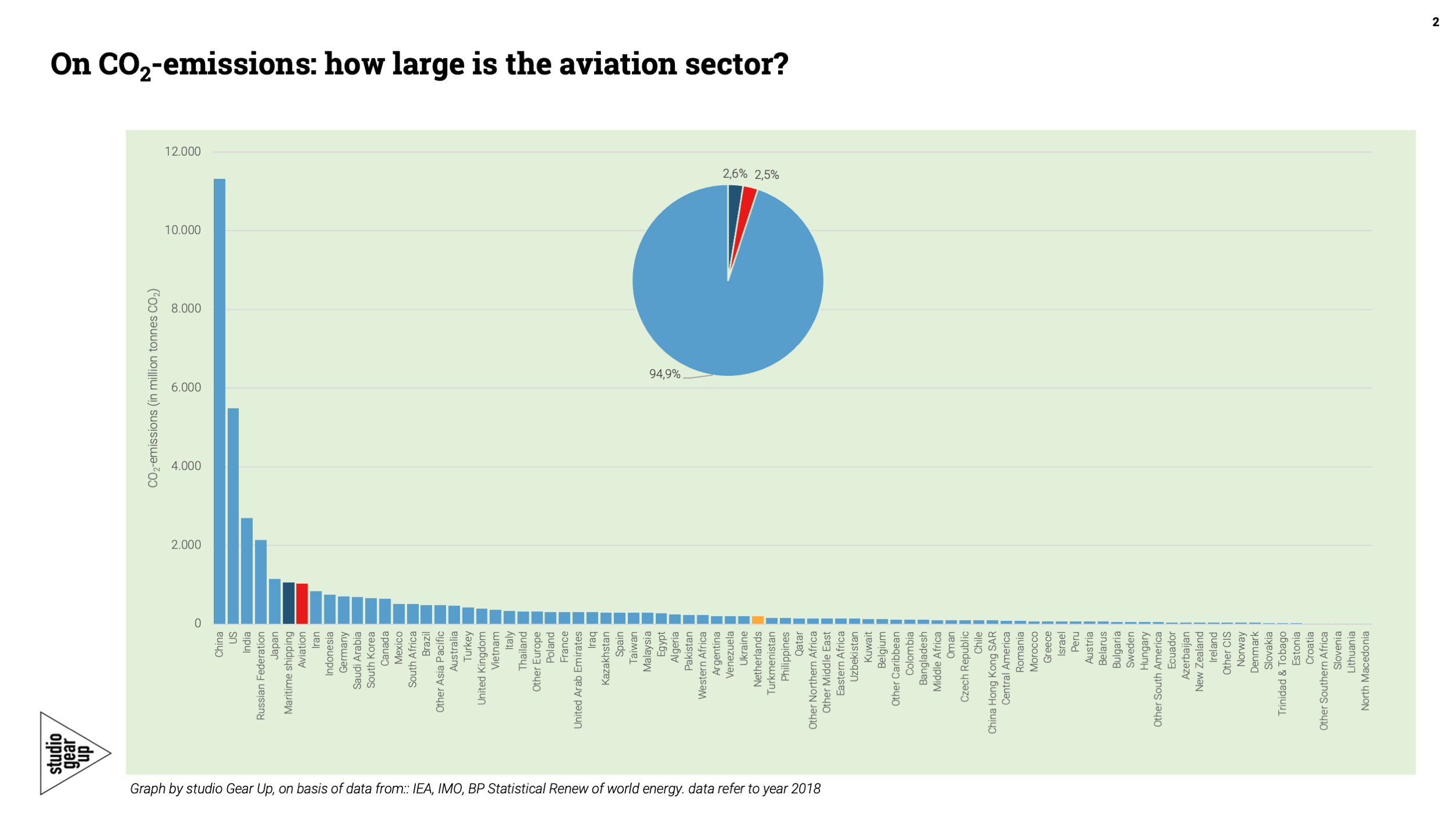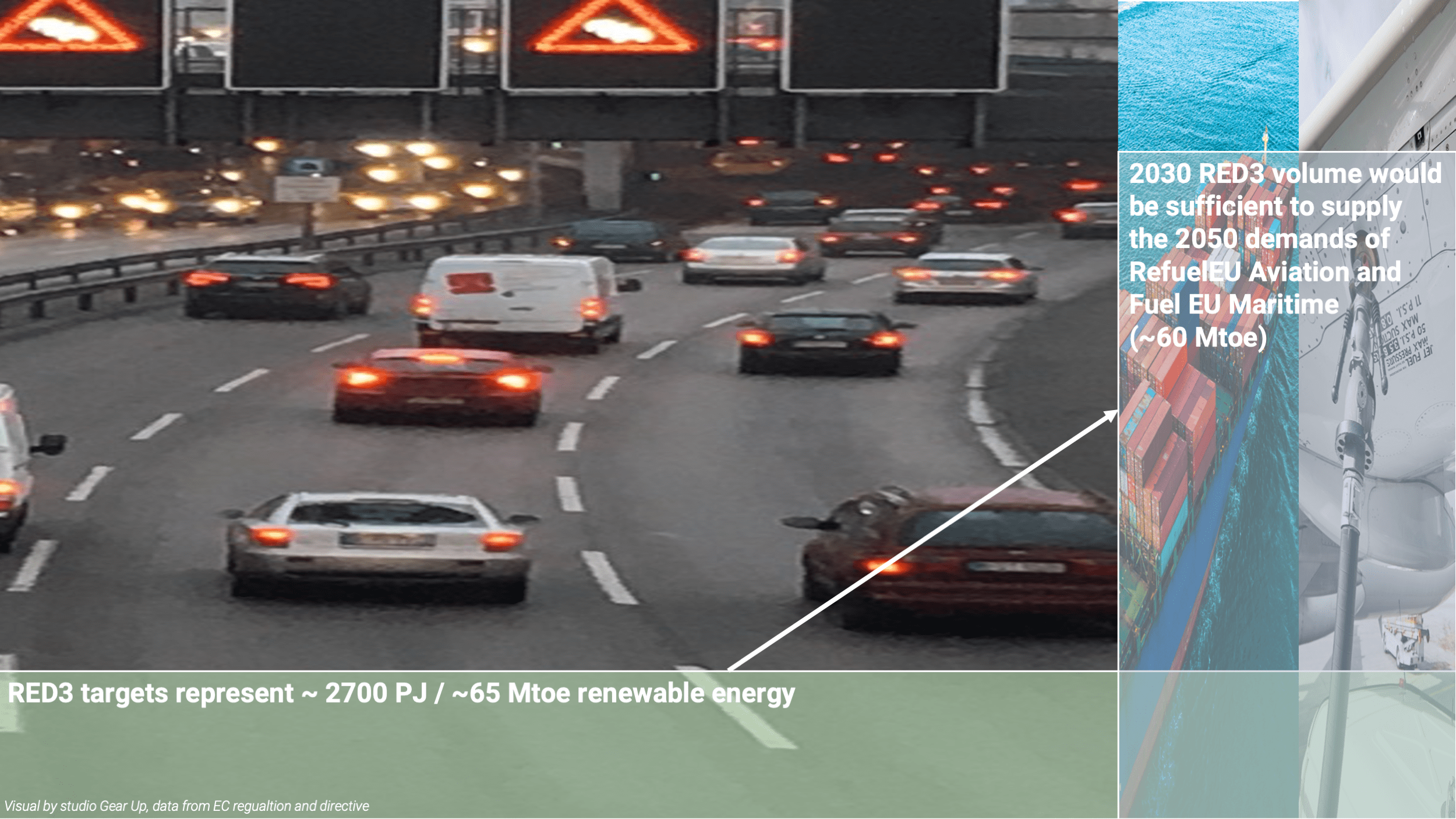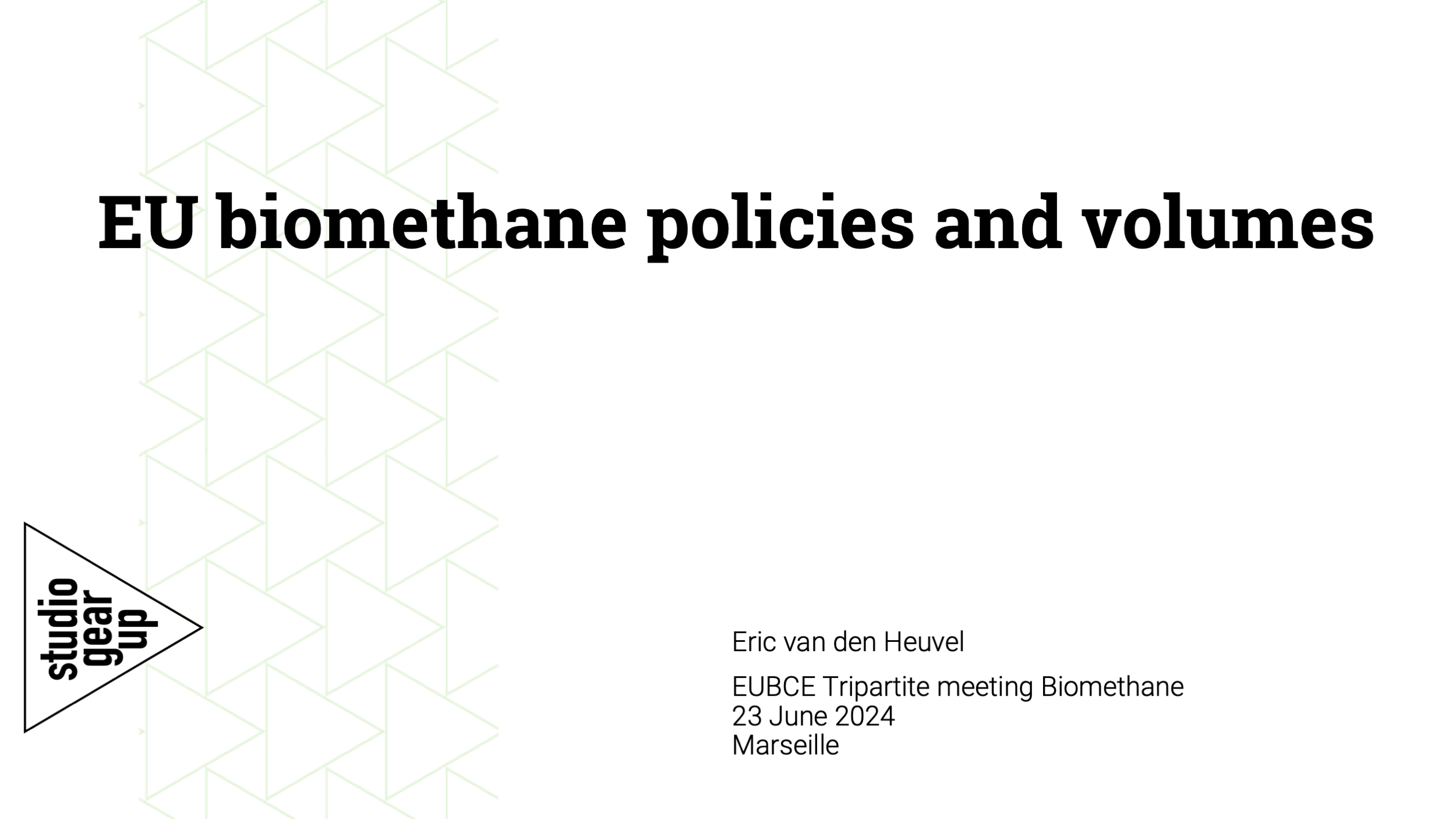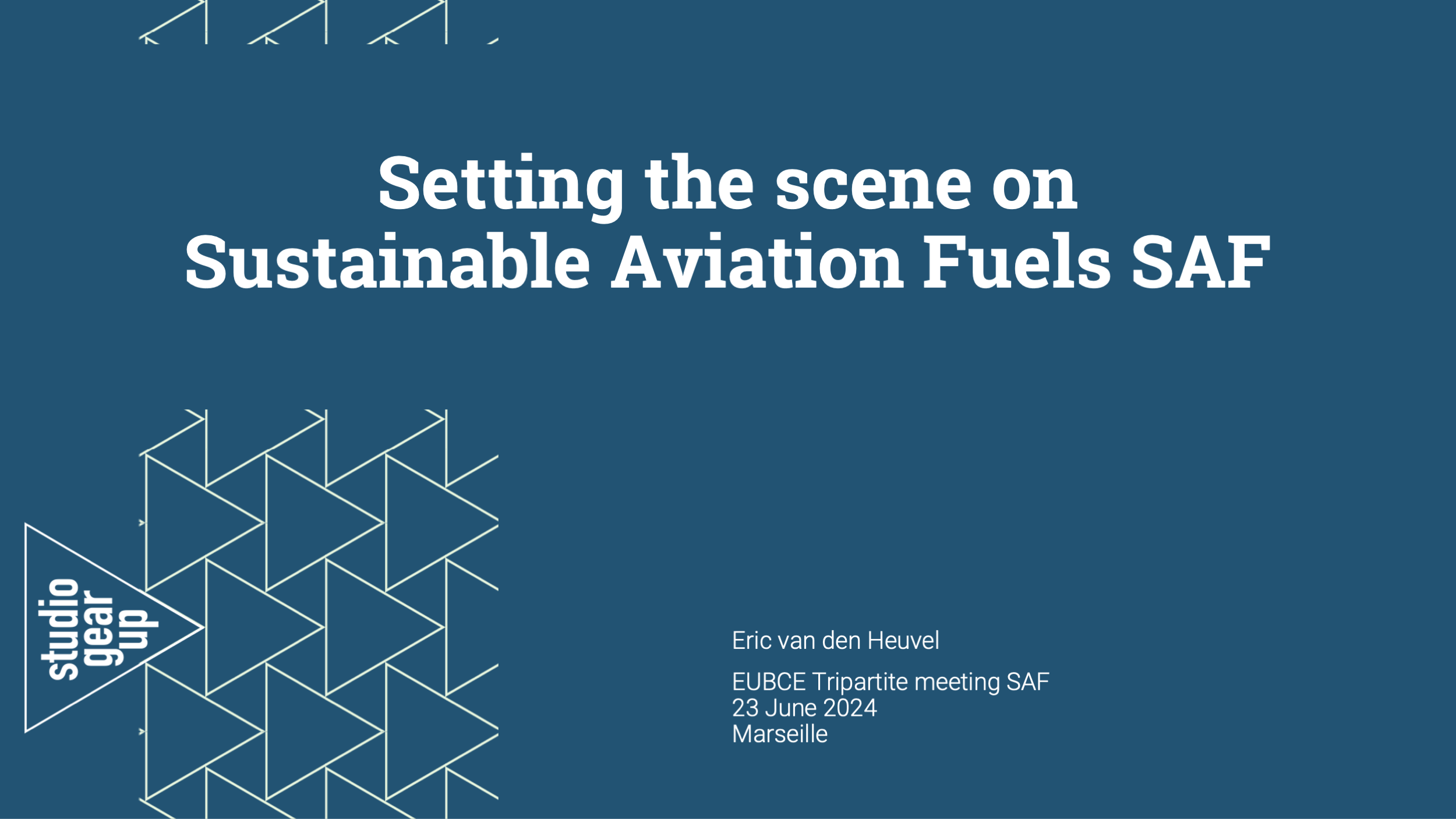Prior to the 2024 European Biomass Conference and Exhibition (June 2024, Marseille) a tripartite meeting between EU, India and China delegations from research bodies, industrial companies and policy makers was organised to exchange how in the three regions the perspectives for biomethane and for sustainable aviation fuels could be enhanced.
studio Gear Up partner Eric van den Heuvel was invited as one of the presenters. The main take-aways for both sessions are the following:
On biomethane in the EU:
RePoweEU ambitions for renewable methane are quite impressive. The aim of establishing the production of 35 billion cubic meters of renewable methane require a 7-fold upscaling as compared to production levels in 2022. Yet, compared to the total demand of current methane (mainly fossil-based natural gas) and the outlook demand for 2030, this ambition for renewable methane still represents less than 15%.
In addition, following a recently published 2024 report by Exergia/RE-Cord for the European Climate, Infrastructure and Environment Executive Agency (CINEA), als as contribution to achieve climate neutrality in the transport and mobility sector additional production capacity of renewable methane is viewed as one of the elementary technology option, in particular for heavy duty vehicles and the maritime sector.
Download the pdf of the presentation on biome here:
Setting the scene on Sustainable Aviation Fuels (SAF)
In terms of greenhouse gas emissions the global aviation sector, would it be a country, would rank as the 7th largest emitter, just behind and nearly equal to the maritime sector, and behind countries like China, the US, India, Russia and Japan.
It is expected that in the near future the sector will keep growing. This explains the urgency to tackle the emissions, which are currently all fossil-based.
Under the Green Deal / fit-for-55 package the general urgency to address climate mitigation in the transport sector has resulted in a number of policy measures. The Renewable Energy Directive III (RED III) now has all transport sectors in scope, including road sector, and, now new, international bunking of maritime and of aviation fuels. RED III aims at lowering the GHG intensity of energy supplied to the transport sectors with 14,5% by 2030. At the same time specific aviation and maritime regulation is in place to increase the share of renewable fuels (aviation) and an ongoing increased lowering of GHG intensity of energy per vessel (maritime): respective 6% SAF for aviation and 6% GHG intensity reduction in maritime by 2030. These targets further increase towards 2050
As a result market players do seem to have appetite for the development of SAF as it represents growing and stable market volume perspectives. At the presentation we have however stresses that it remains important to embed the production capacity increases for SAF in the overall renewable fuel production capacity for all transport sectors. By 2030, the volumes of renewable energy needed to comply to REDIII will in majority be required in the road sector, even though in that sector electric modality is on the rise. As aviation bunkering fuels and maritime bunkering fuels each only represent about 10-12% of total energy consumption in EU transport, the ReFuelEU Aviation and FuelEU Maritime Regulations mandates in 2030 represent only a small portion of the REDIII required volumes. In fact, the 2050 ReFuelEU Aviation and FuelEU Maritime Regulations mandates for renewable fuels equal – volume wise – about the same energy need required to comply to REDIII in 2030.
Our recommendation therefore is to address flexibility in the build-up of production capacity for renewable fuels, so that the road sector can be served in the short term, and when electrification decreases the need for liquid fuels in that sector the renewable fuels production volumes than can be switched to the aviation and maritime sector.





